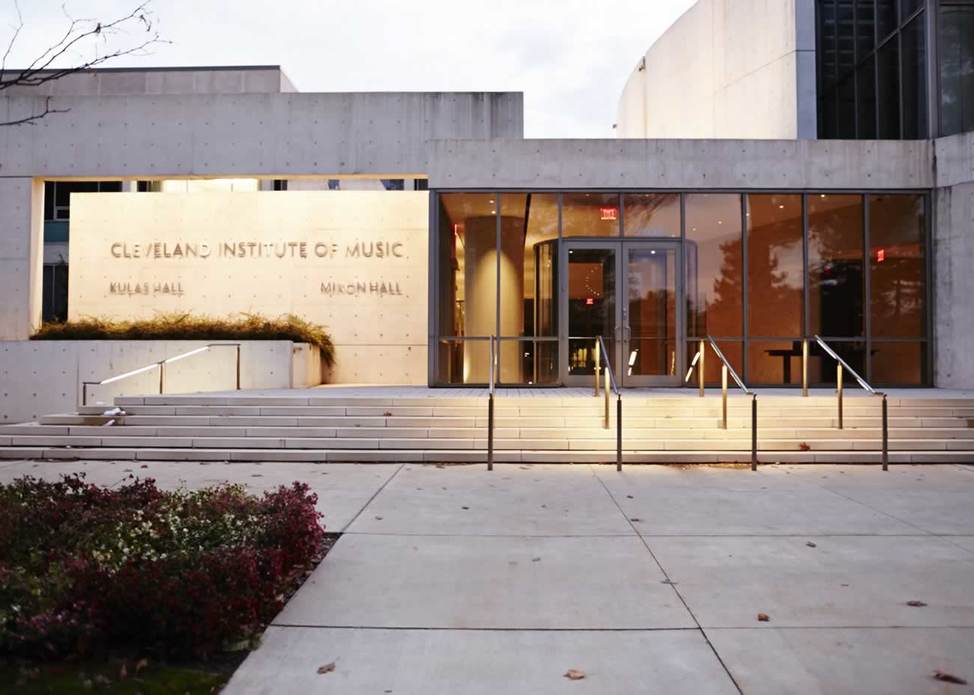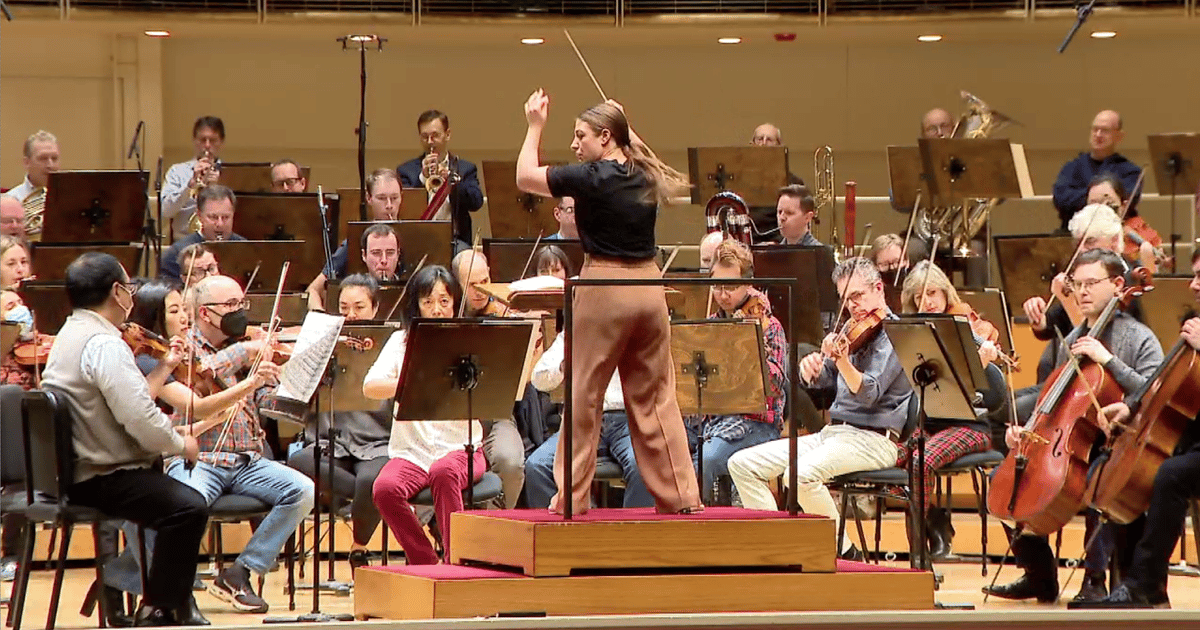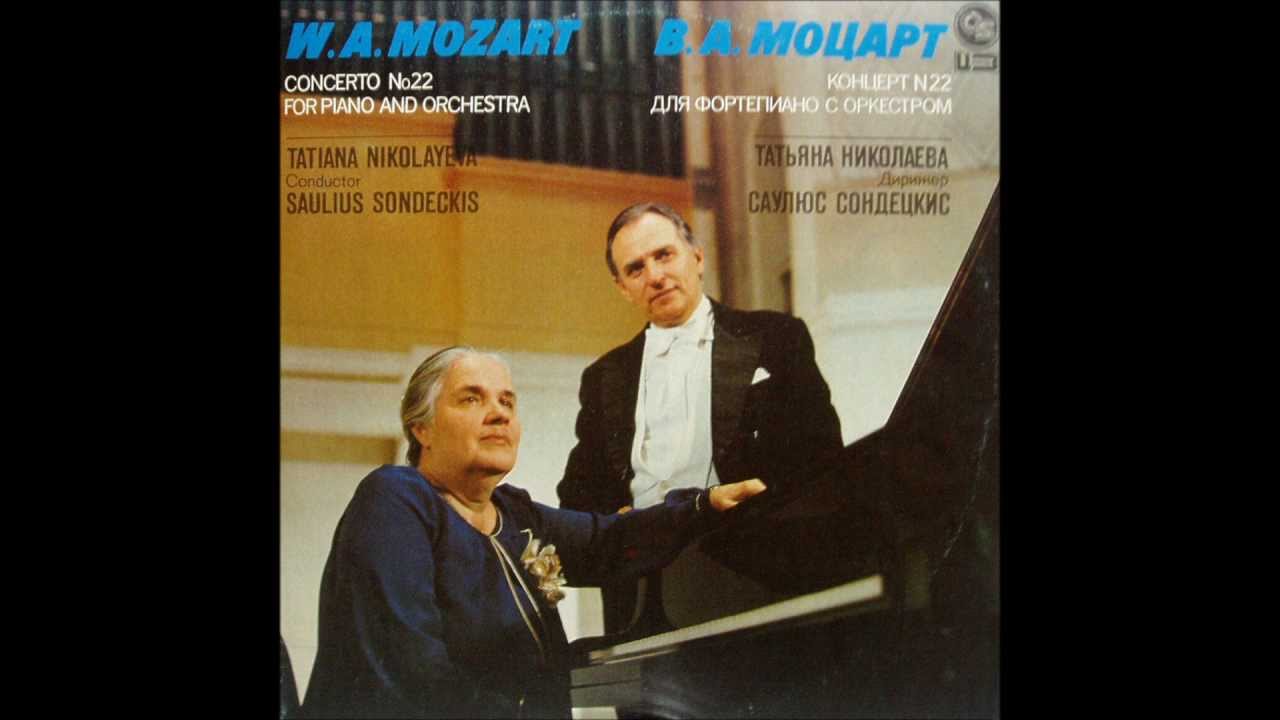Death of a brilliant American composer, aged 84
mainThe death has been announced of Pauline Oliveros, a composer of striking originality and a profound philosopher of modern music.
An activist at the San Francisco Tape Music Center, she she coined the term ‘Deep Listening’ and founded the Deep Listening Institute. Aside from electronic music, she was an accordion enthusiast.

From an interview with Bruce Duffie:
BD: So what are the issues that are currently at hand?
PO: It’s the great dispersion that I predicted in my book Software for People, which was that the two factors were the great increase in population — there more people than there ever have been before — and the acceleration of new technology. You really don’t know what’s coming next, exactly. Everyone is always trying to predict and control the future, but I don’t think it’s possible at this time because there are just too many X factors.
BD: So you and your foundation and your music are building the future brick by brick?
PO: Yeah, I would say something like that; or we might take some leaps! But the idea is that we need a context for new work, because it has to do with the quality of life. It has to do with problem solving, understanding the creative nature of the human being, and working with it and accepting it; finding ways to do that. Not just repeating things that have been done before, but to bring some kind of balance in place for the unknown.
BD: Is it at all disappointing that the public isn’t craving the unknown in music?
PO: The public is, but they don’t necessarily know it! [Laughs]





From this video it does not seem to me very clear how this brick can contribute to the future of music. If one long-held note, and the following re-invention of the fifth, and then the courageously filling-out of a simple chord, is indicating something like ‘understanding the creative nature of the human being, and working with it and accepting it’, then the future of music appears to be very primitive, or: simply returning to its earliest beginnings, as if there has been no musical culture at all. How could that be constructive, creative, inventive? Those primitive sounds have been done before numerous times and, let us say, not by the greatest minds of humanity.
Evaluating a 65-year-long career based on a single YouTube clip is real evidence of not possessing one of “the greatest minds of humanity.”
https://www.youtube.com/watch?v=8wrNL063Gys
https://www.youtube.com/watch?v=Msg4m8pzHoE
https://www.youtube.com/watch?v=UbKMdszoY_Y
https://www.youtube.com/watch?v=sEJzAM04k5o
https://www.youtube.com/watch?v=jMkWHnNbWc8
https://www.youtube.com/watch?v=e_AaUlhEdS0
I rest my case.
If only.
Sniff sniff.
Dear John,
You are absolutely entitled to your opinions and I wouldn’t wish for a moment to take them from you or prevent you from expressing them. In fact I often rather enjoy reading your more provocative comments. However I must say in this instance that to speak so ill (even offensively) of a fellow composer in the immediate aftermath of her death is in very poor taste indeed.
I merely reacted to the video, I don’t know her, never heard of her. When criticized, I explored more videos of her work, which only confirmed my impressions. There is nothing personal in this. Should one suddenly stop having opinions about this stuff for personal reasons? In the visual arts, there are numerous concept artists spending their entire life on nonsensical things, should that suddenly be elevated, from hindsight, on their passing? Maybe there is some objective truth in observations that take away the ‘halo’ of concept art, sonic art, and the like, which may be some painful reality that would have served these people better if they had made comparable observations earlier in their life.
Never heard of Pauline Oliveros? Really?? REALLY???
Doesn’t speak well for your oft-self-touted knowledge of the field.
Well, let me share with you the lengthy obituary from the New York Times. Apparently some (!) people have heard of her.
http://nyti.ms/2gwXbmW
Let it be noticed that in the article, the lady is pictured with an ACCORDEON, apparently a much-preferred instrument.
http://www.bruceduffie.com/oliveros.html
Very good interview done many years ago with Bruce Duffie (but not typed up by me this time!) Worth a read.
https://www.youtube.com/watch?v=_QHfOuRrJB8
A living composer who was completely unaware of Oliveros must live in some sort of reactionary bubble.
http://www.nytimes.com/2016/11/27/arts/music/pauline-oliveros-composer-who-championed-deep-listening-dies-at-84.html
It may be that what enthusiasts of sonic art call ‘reactionary’, is actually the reality of music practice.
Accusations of ‘conservatism’ and ‘reactionary attitude’ that are aimed regularly at the central performance culture from the little corner of sonic buzz, mostly serve as an excuse for the corner’s lack of musical artistry. People operating in musical practice, with the accent on musical, are allowed, without excuse, to be happily unaware of the noises coming from people who prefer playing with sounds to practicing music.
Interestingly, often sonic artists attack music making as being ‘dead’, and the central performance culture as ‘merely repeating old stuff’ to comatose audiences, but this can be explained by the lack of musical understanding of sonicists themselves, which – of course – is directly related to their choice of profession.
This may be helpful to explain the phenomenon:
http://subterraneanreview.blogspot.nl/2015/11/be-liberated.html
Yes, Scott, Mr. Borstlap’s protestations notwithstanding, the fact is that he said he was unaware of a recognized major figure in music. With a career spanning several decades, it is remarkable to not have noticed or heard of Pauline Oliveros.
With all due respect, what the lady did has nothing to do with music, so I don’t see why I should have noticed her. And then, I found becoming aware of European sonic artists already depressing enough, so why extend misery by researching the American variety? There is nothing against sonic art as such but please, claiming it is part of MUSICAL culture is crazy and will, of course, invite criticism and objections.
Relax everybody, Bortslap is well-known on this site for continuously ventilating his boring opinions against anything remotely creative or interesting. He is a self-professed ‘composer’ himself, of trite ditties of no great merit or originality, who will be instantly forgotten along with his music once he steps off this mortal coil. Lebrecht titled his tribute to Pauline Oliveros “Death of a brilliant composer”, because she was. We can all rest assured that there will be no such encomium on Slipped Disc for the likes of Borstlap.
There are always people who long for a world wherein 2 + 2 = 5, and resort to ad hominum attacks when pointed-out that it does not work.
I fixed pancakes for Pauline Oliveros and her associate, Robert Mann (really). The year was 1995 at the Cloud Mountain Buddhist Retreat Center in Washington State. It was a retreat for those who just wanted to listen, a group of about 15 persons, and everything was done in total silence. The pancakes came after the retreat was over. She was a delight in every way and was the real thing.
… and when the crispy sound of baking pancakes came over us, and the smell of butter and syrup filled the room, we were sure something very special was to happen – a real epiphany!
[Sorry, I could not resist :-)]
Since John Cage showed that you could call everything ‘music’, such epiphanies suddenly got fashionable with lots of people who, up till then, had suffered under the impression that the sound of pancakes baking was nothing more than that. Now they could claim some cultural value for their culinary pastimes, and go into the streets to vote for their fake.
This article from NPR gives a bit of insight into her musical ethos:
http://n.pr/2g7KMbQ
I have spoken with several composers, who are saddened at the loss of their beloved colleague.
I met her once. We had a pleasant conversation.
This obituary in The New Yorker confirms everything said about mrs O’s work being not music but sonic art and not even that: the ‘music’ was a by-product of healing of the soul:
http://www.newyorker.com/culture/culture-desk/listening-as-activism-the-sonic-meditations-of-pauline-oliveros